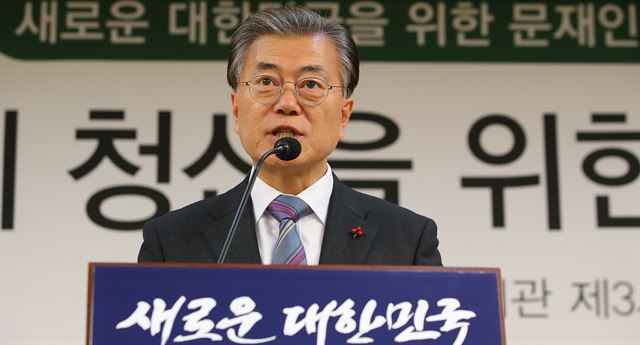The outlook for Moon Jae-in administration’s drive to reform organs of state power appears bleak with conservative opposition hitting back immediately after the plans were announced.
 |
(Yonhap) |
On Sunday, Cheong Wa Dae revealed reform plans for the National Intelligence Service, National Police Agency and the Public Prosecutors’ Office, aiming to increase transparency and prevent one body wielding too much power.
The gist of the plans is to limit the NIS to North Korea and overseas intelligence, reduce prosecutors’ authority and influence in the judicial system, and to strengthen and departmentalize the police agency’s functions. The police will also take over the spy agency’s role in investigating cases involving North Korean, or communist sympathizers, and an independent body will be launched to investigate allegations involving high-level government officials.
The main opposition Liberty Korea Party, however, accused the administration of attempting to bring the organizations under its control, and to use them for political retaliation.
“The guidelines are not focused on political independence of the power organs, but a political ploy to combine reform with political revenge,” Rep. Chang Je-won, a member of the special committee on judiciary reform, said on Sunday.
He added that Cheong Wa Dae’s announcement was a “dictatorial idea” aimed at neutralizing the special committee.
Chang also claimed that the plans are designed to brand the Liberty Korea Party as anti-reformist, and said that the party will not discuss any changes regarding the NIS.
“Abolishing anti-communism investigation rights is (tantamount to) disbanding the NIS. (The Liberty Korea Party) will not even put the NIS reform on the table.”
The main opposition continued to press its attack on Monday, accusing the presidential office of repeating the mistakes of the Park Geun-hye administration. In the scandal that led to Park’s fall, it was alleged that presidential aides manipulated the NIS, prosecution and other government bodies.
The opposition cited the president’s authority to name high-level officials in the Public Prosecutors’ Office as the core of the problem, and called on Moon to give up the related powers.
The minor opposition People’s Party has expressed agreement with the plans in principle, but whether it will support the reform remains to be seen due to the party’s ongoing factional battle.
The party’s ongoing merger process with Bareun Party, a minor conservative group with 10 seats in the Assembly, has divided the party. Those opposing the merger have threatened to splinter off. In addition, the Bareun Party’s stance is largely similar to that of the main opposition, adding further uncertainty to the equation.
As expected, the ruling Democratic Party of Korea fully supports the plans, welcoming it as an “unopposable trend of the times.”
The party’s support, however, could mean little for the Moon administration. The party’s 121 seats falls far short of the 149 needed to secure a majority in the Assembly.
By Choi He-suk (
cheesuk@heraldcorp.com)






![[Herald Interview] 'Trump will use tariffs as first line of defense for American manufacturing'](http://res.heraldm.com/phpwas/restmb_idxmake.php?idx=644&simg=/content/image/2024/11/26/20241126050017_0.jpg)
![[Exclusive] Hyundai Mobis eyes closer ties with BYD](http://res.heraldm.com/phpwas/restmb_idxmake.php?idx=644&simg=/content/image/2024/11/25/20241125050044_0.jpg)
